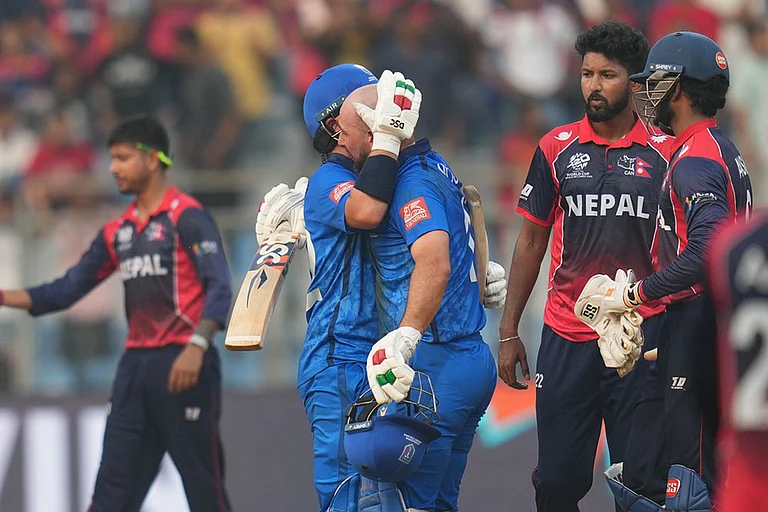England seem to have leapfrogged into a new era of Test cricket under their newly anointed coach Brendon McCullum and skipper Ben Stokes with back-to-back victories against the reigning World Test Champions New Zealand in the ongoing three-match series. (More Cricket News)
Following a dismal 13-month period from February 2021 to March 2022 that saw them lose 11 and win only two out of 18 Tests, England have suddenly grabbed the eyeballs with two successful 270-plus run chases against a team they suffered a series defeat at home only 12 months ago.
The second of these victories in the recently-concluded Trent Bridge Test was breathtaking with the home side hunting down 299 in 50 overs on the back of a whirlwind 77-ball hundred from Jonny Bairstow and an enterprising 70-ball 75 from skipper Stokes. The Stokes-led team, in fact, plundered 160 runs in 16 overs during the last session of the match to take an unassailable 2-0 lead in the series.
As pointed out by former India opener Wasim Jaffer on Twitter, the mindset of English batters has changed drastically since Stokes and McCullum took charge of the Test team a fortnight ago, replacing Joe Root and Chris Silverwood as captain and coach, respectively. Against the same Kiwi team, England had chosen to play it safe and were content with a draw when they were set a similar target on the last day of a Test match in June 2021.
“June 2021: NZ set Eng 273 in 75 overs. Eng bat out a draw scoring 170/3 (70). June 2022: NZ set Eng 299 in 72 overs. Eng chase it down in 50 overs! What changed? Mindset,” wrote Jaffer in his tweet.
DIFFERENT FORMAT, OLD FORMULA
Only time will tell whether Stokes and Co continue to taste success in the future with this ultra-aggressive brand of Test cricket. However, one thing is certain. Under McCullum and Stokes, England seem to have adopted the same template for Test cricket that paid them rich dividends in the ODIs following the 2015 World Cup debacle in Australia.
During the 2015 WC, England were completely out of sorts and failed to qualify for the quarterfinals after suffering four defeats in six group matches. The only sides they got the better of during the tournament were Afghanistan and Scotland while Australia, New Zealand, Sri Lanka and even Bangladesh managed to outmuscle them.
At the heart of England’s failure to progress beyond the group stage was their timid approach to batting. While Australia and New Zealand – the teams that locked horns in the final – scored at 6.84 and 6.32 runs per over (RPO) respectively, England’s tournament average RPO read a lowly 5.48, which was better than those of only Scotland and Afghanistan.
It appeared as if England were caught in a time warp. While other teams went hammer and tongs from the outset and churned out 300-plus totals for fun, the English side seemed to be capable of scoring only 240-250.
It all changed a few months later when England appointed Australian Trevor Bayliss as their new coach. Bayliss and limited-overs captain Eoin Morgan together charted a new path before the team, urging the batters to attack from the first ball and keep going after the bowling without worrying about the loss of wickets.
Coincidentally, the home series that heralded England’s transformation in the white-ball cricket was played against New Zealand in June 2015. In the five-match series that England won 3-2, the home team went past 300 on four occasions. In one of those games, they even racked up 408/9. In another, the hosts chased 350 with six overs to spare. McCullum, who is now coaching England, was New Zealand’s captain back then.
England continued to play in a similar fashion for the ensuing four years. In the 99 ODIs that they played between June 2015 and July 2019, their average RPO was a highly impressive 6.28, which was also the best in the world during this period. They won 65 of these 99 games and were crowned the ODI World Champions for the first time on July 14 2019 when they pipped New Zealand in a nail-biting Super Over on boundary count.
It will be interesting to see if England go on to scale similar heights in Tests with a formula that worked wonders for them in the limited-overs cricket.
(Ankit Kumar Singh is a journalist-turned-academician. Views are personal)

























